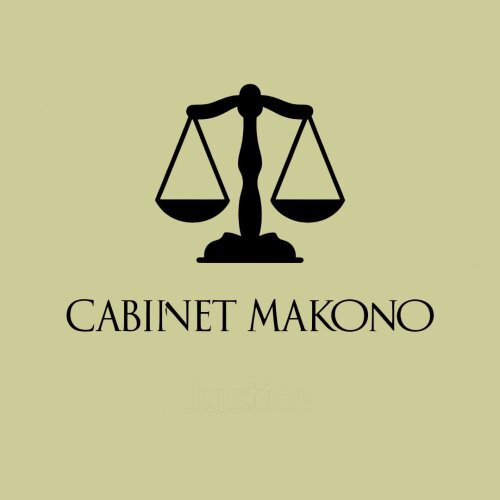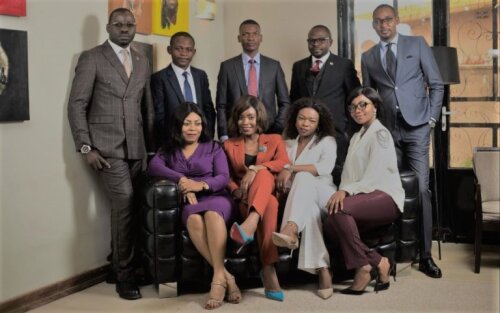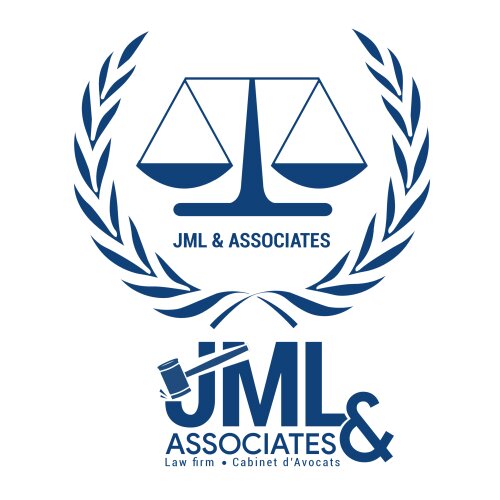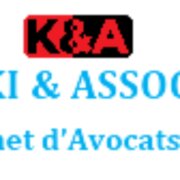Best Bad Faith Insurance Lawyers in DR Congo
Share your needs with us, get contacted by law firms.
Free. Takes 2 min.
Or refine your search by selecting a city:
List of the best lawyers in DR Congo
About Bad Faith Insurance Law in DR Congo:
Bad Faith Insurance refers to the practice of an insurance company denying or delaying legitimate claims in an unreasonable or dishonest manner. In DR Congo, insurance companies are legally required to act in good faith when handling claims from policyholders. If an insurance company acts in bad faith, policyholders have the right to seek legal recourse to enforce their rights and receive the compensation they are entitled to.
Why You May Need a Lawyer:
You may need a lawyer in the field of Bad Faith Insurance in DR Congo if you believe that your insurance company is acting in bad faith by denying or delaying your valid claim. A lawyer can help you navigate the legal system, protect your rights, and ensure that you receive the compensation you are entitled to under the law.
Local Laws Overview:
In DR Congo, the insurance sector is regulated by the Insurance Code. This code sets out the rights and obligations of insurance companies and policyholders, including the requirement for insurance companies to act in good faith when handling claims. If an insurance company violates these provisions, policyholders have the right to take legal action to enforce their rights and seek compensation.
Frequently Asked Questions:
1. What is considered bad faith by an insurance company?
Bad faith by an insurance company can take many forms, including unreasonably denying a valid claim, delaying the claims process without justification, or offering a settlement that is significantly lower than the value of the claim.
2. How can I prove that my insurance company is acting in bad faith?
You can prove bad faith by gathering evidence such as correspondence with the insurance company, claim forms, policy documents, and any other relevant documentation that demonstrates the unreasonable or dishonest behavior of the insurance company.
3. What damages can I recover in a bad faith insurance claim?
In DR Congo, you may be able to recover the full amount of your claim, additional damages for the harm caused by the bad faith conduct, and in some cases, punitive damages to punish the insurance company for their behavior.
4. How long do I have to file a bad faith insurance claim in DR Congo?
The time limit to file a bad faith insurance claim in DR Congo may vary depending on the circumstances of your case and the specific provisions of the Insurance Code. It is important to consult with a lawyer to understand the applicable deadlines for your claim.
5. Can I sue my insurance company for bad faith without a lawyer?
While it is possible to represent yourself in a bad faith insurance claim, it is highly recommended to seek the assistance of a lawyer with experience in this area of law. A lawyer can help you navigate the legal system, gather evidence, and present a strong case on your behalf.
6. What are the steps involved in pursuing a bad faith insurance claim in DR Congo?
The steps involved in pursuing a bad faith insurance claim may include gathering evidence, sending a demand letter to the insurance company, negotiating a settlement, filing a lawsuit if necessary, and presenting your case in court. A lawyer can guide you through each step of the process.
7. How much does it cost to hire a lawyer for a bad faith insurance claim?
The cost of hiring a lawyer for a bad faith insurance claim may vary depending on the complexity of your case, the lawyer's experience, and the fee arrangement agreed upon. Some lawyers may offer a contingency fee arrangement, where they only get paid if you win your case.
8. Can I file a complaint against my insurance company for acting in bad faith?
Yes, you can file a complaint against your insurance company for acting in bad faith with the regulatory authorities in DR Congo. In addition to filing a complaint, you may also have the right to pursue legal action against the insurance company to seek compensation for the harm caused by their conduct.
9. What are some common tactics used by insurance companies to act in bad faith?
Common tactics used by insurance companies to act in bad faith include denying valid claims without a reasonable basis, delaying the claims process without justification, offering unreasonably low settlements, and misrepresenting the terms of the insurance policy to policyholders.
10. How can I protect myself from bad faith insurance practices?
To protect yourself from bad faith insurance practices, it is important to carefully review your insurance policy, keep detailed records of all communications with the insurance company, follow the claims process outlined in your policy, and seek legal advice if you suspect that your insurance company is acting in bad faith.
Additional Resources:
If you need legal advice or assistance with a bad faith insurance claim in DR Congo, you can contact the National Insurance Authority or consult with a local law firm specializing in insurance law. These resources can provide you with the information and support you need to pursue your claim and protect your rights.
Next Steps:
If you believe that your insurance company is acting in bad faith and you need legal assistance, it is important to consult with a qualified lawyer who can assess your case, explain your rights, and guide you through the process of pursuing a claim. By taking timely action and seeking expert legal advice, you can increase your chances of successfully enforcing your rights and obtaining the compensation you deserve.
Lawzana helps you find the best lawyers and law firms in DR Congo through a curated and pre-screened list of qualified legal professionals. Our platform offers rankings and detailed profiles of attorneys and law firms, allowing you to compare based on practice areas, including Bad Faith Insurance, experience, and client feedback.
Each profile includes a description of the firm's areas of practice, client reviews, team members and partners, year of establishment, spoken languages, office locations, contact information, social media presence, and any published articles or resources. Most firms on our platform speak English and are experienced in both local and international legal matters.
Get a quote from top-rated law firms in DR Congo — quickly, securely, and without unnecessary hassle.
Disclaimer:
The information provided on this page is for general informational purposes only and does not constitute legal advice. While we strive to ensure the accuracy and relevance of the content, legal information may change over time, and interpretations of the law can vary. You should always consult with a qualified legal professional for advice specific to your situation.
We disclaim all liability for actions taken or not taken based on the content of this page. If you believe any information is incorrect or outdated, please contact us, and we will review and update it where appropriate.
Browse bad faith insurance law firms by city in DR Congo
Refine your search by selecting a city.
















